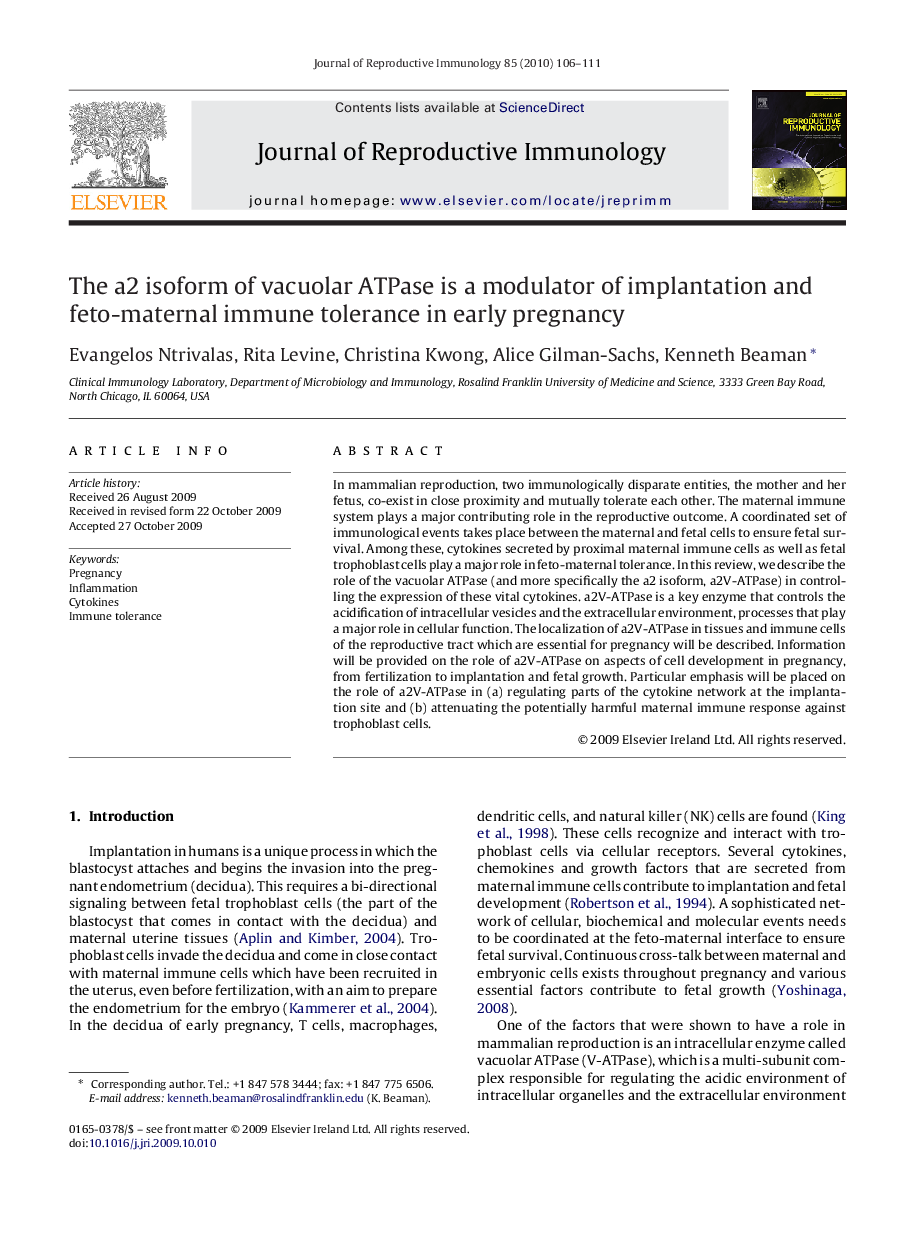| Article ID | Journal | Published Year | Pages | File Type |
|---|---|---|---|---|
| 3965944 | Journal of Reproductive Immunology | 2010 | 6 Pages |
In mammalian reproduction, two immunologically disparate entities, the mother and her fetus, co-exist in close proximity and mutually tolerate each other. The maternal immune system plays a major contributing role in the reproductive outcome. A coordinated set of immunological events takes place between the maternal and fetal cells to ensure fetal survival. Among these, cytokines secreted by proximal maternal immune cells as well as fetal trophoblast cells play a major role in feto-maternal tolerance. In this review, we describe the role of the vacuolar ATPase (and more specifically the a2 isoform, a2V-ATPase) in controlling the expression of these vital cytokines. a2V-ATPase is a key enzyme that controls the acidification of intracellular vesicles and the extracellular environment, processes that play a major role in cellular function. The localization of a2V-ATPase in tissues and immune cells of the reproductive tract which are essential for pregnancy will be described. Information will be provided on the role of a2V-ATPase on aspects of cell development in pregnancy, from fertilization to implantation and fetal growth. Particular emphasis will be placed on the role of a2V-ATPase in (a) regulating parts of the cytokine network at the implantation site and (b) attenuating the potentially harmful maternal immune response against trophoblast cells.
